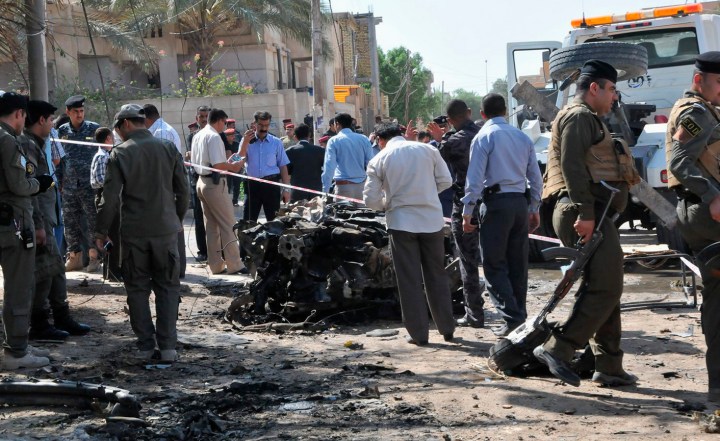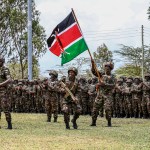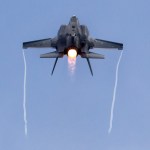Newsdeck
Iraq blasts kill 100 as fugitive VP gets death sentence

A series of bombs ripped through mainly Shi'ite Baghdad districts on Sunday after Iraq's fugitive Vice President Tareq al-Hashemi was sentenced to death, ending one of the bloodiest days of the year with more than 100 killed across the country. By Kareem Raheem.
The violence and the sentence for Hashemi, a senior Sunni politician, threatened to stoke sectarian tensions in Iraq where a Shi’ite-led government is battling political instability and a Sunni Islamist insurgency nine months after U.S. troops left.
Hashemi, a fierce critic of Shi’ite Prime Minister Nuri al-Maliki, fled Iraq after the authorities issued a warrant for his arrest in December, a move that risked collapsing a fragile power-sharing agreement among Shi’ite, Sunni and Kurdish blocs.
After Sunday’s court ruling, car bombs tore through six districts around Baghdad, hitting a restaurant and a cafe. Another bomb went off in a busy commercial area, killing more than 50 people following bombs in other cities nationwide.
“I heard women screaming, I saw people running in all directions, chairs scattered in the street. My windows were blown out, my mother and two kids were injured too,” said Alla Majid, still shaking after a blast in Baghdad’s Sadr City.
Hashemi, who is unlikely to return to Iraq from Turkey, had accused Maliki’s government of controlling the judiciary and of orchestrating a crackdown on Sunni opponents. He had refused to appear in a court he dismissed as biased.
He and his son-in-law were both found guilty in absentia of murdering a female lawyer and security official, Abdul-Sattar al-Birqdar, a judiciary spokesman said.
“This is a political decision. All our respect to the Iraqi judicial system, but this was political,” said lawmaker Jaber al-Jaberi, a member of Hashemi’s Sunni-backed Iraqiya party.
Hours before the sentence was announced, a wave of bombings and shootings had already killed at least 58 people and a car bomb had exploded outside a French consular office in Nassiriya in southern Iraq.
Since the last U.S. troops left, Maliki’s Shi’ite-led government has been politically deadlocked and insurgents have continued to strike, hoping to ignite the kind of sectarian tensions that drove Iraq close to civil war in 2006-2007.
The most serious of the attacks happened near the city of Amara, 300 km (185 miles) south of the capital, when two car bombs exploded outside a Shi’ite shrine and a market place, killing at least 24 people, officials said.
With its main hospital overflowing with the injured, mosques in Amara used prayer loudspeakers to call for blood donations.
More were killed in bombings in the towns of Kirkuk, Baquba, Samarra, Basra and Tuz Khurmato, and there was also a strike on an army base and a bombing of security guard recruits for the Iraqi North Oil Company.
The car bomb outside the building housing the French consular office in Nassiriya, 300 km south of Baghdad, killed a police guard and wounded four, authorities said. The consul, an Iraqi citizen, was not at the office.
SECTARIAN TENSIONS
After the fall of Sunni dictator Saddam Hussein and the rise to power of Iraq’s Shi’ite majority, many Iraqi Sunnis feel they have been sidelined.
Sunni politicians say Maliki is failing to live up to agreements to share power among the parties, a charge his backers dismiss, pointing to Sunnis in key posts.
When the Hashemi charges were announced, his Iraqiya party attempted a short-lived boycott of parliament and the Cabinet. But the party has since splintered further, strengthening the political hand of Maliki’s Shi’ite coalition.
Heightened political tension is often accompanied by a surge in violence as Sunni Islamist insurgents try to capitalise on instability to strike at the government, local security forces and Shi’ite religious targets.
Violence in Iraq has eased since the dark days of sectarian slaughter that erupted a few years after the 2003 invasion to topple Saddam. But insurgents are still carrying out at least one major coordinated attack a month.
Infighting in the religiously mixed government, and a resurgence of a local al Qaeda wing, are raising fears of a return to wider violence, especially as Iraq is struggling to contain spillover from Syria’s crisis over the border.
Iraq’s local al Qaeda affiliate, Islamic State of Iraq, has claimed responsibility for major attacks on security forces and Shi’ite neighbourhoods. Former members of Saddam’s outlawed Baathist party and other Sunni Islamist groups are also fighting the government. DM
Photo: Iraqi security personnel inspect the site of a car bomb attack outside a French consular building in Nassiriya, 300 km (185 miles) south of Baghdad,September 9, 2012. One car bomb exploded outside the French consular building in the usually stable city of Nassiriya, south of Baghdad, wounding two people, police said. Another car bomb also detonated in the city, killing two and wounding three. REUTERS/Stringer



















 Become an Insider
Become an Insider